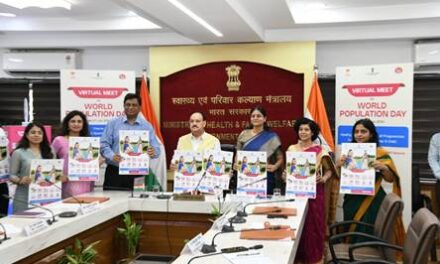New Delhi, August 31, 2024 – The National Green Tribunal (NGT) has raised serious concerns about the widespread presence of microplastics in all salt and sugar brands across India, urging the Indian Council of Medical Research (ICMR) and the Food Safety and Standards Authority of India (FSSAI) to take immediate action. This directive comes in response to a report by PTI that highlighted the alarming levels of microplastic contamination in these essential commodities.
The tribunal, acting on its own accord, noted that microplastics in salt and sugar appear in various forms, including fibers, pellets, films, and fragments, with sizes ranging from 0.1 mm to 5 mm. The highest concentration of these contaminants was found in iodised salt, where multicolored thin fibers and films were particularly prevalent.
In sugar, the situation was similarly troubling, with microplastic concentrations reaching as high as 68.25 pieces per kilogram in non-organic samples. The tribunal highlighted the potential long-term health risks posed by these contaminants, emphasizing the urgent need for regulatory intervention.
“The presence of microplastics in such high concentrations in essential food items like salt and sugar poses a significant threat to public health,” the NGT stated in its order. “The discrepancies between India’s consumption rates of these contaminants and World Health Organization (WHO) recommendations are concerning and warrant immediate attention.”
The NGT has directed the ICMR and FSSAI to file their responses by December 3, 2024, detailing their plans to address the issue. The respondents have been instructed to ensure their attendance if filing directly, signaling the tribunal’s insistence on prompt and decisive action.
Microplastics, tiny plastic particles less than five millimeters in size, are known to persist in the environment and enter the food chain through various means, including contaminated water, air, and soil. Their presence in food products has raised alarm globally, with growing evidence linking microplastic consumption to adverse health effects, including inflammation, metabolic disruption, and potential toxicity.
The NGT’s directive reflects a growing awareness of the need for stringent food safety measures in India, especially in light of the increasing use of plastic in packaging and the widespread environmental contamination caused by plastic waste. The tribunal’s intervention aims to push for comprehensive research and policy measures to mitigate the risks associated with microplastic contamination in food.
As India continues to grapple with the challenges of environmental pollution and public health, the NGT’s call to action serves as a crucial step toward ensuring the safety and well-being of the nation’s population. The response of the ICMR and FSSAI will be closely watched in the coming months as the country seeks to address this emerging public health concern.










